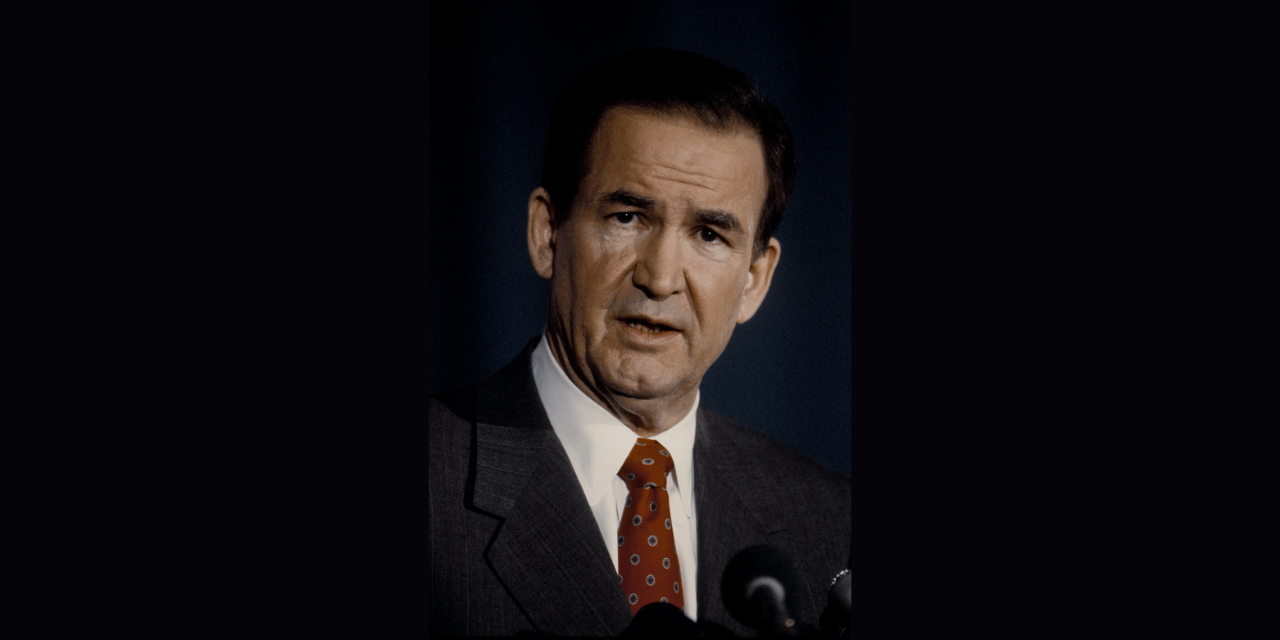Renowned columnist and three-time presidential candidate Pat Buchanan announced his retirement earlier this year, capping a half-century career in Washington as a presidential aide, political contender, pundit, and bestselling author.
Nicknamed “Pitchfork Pat” for his strong populist rhetoric, Buchanan was regularly castigated by mainstream press for his opinions. He was labeled divisive, angry – and extreme, especially when it came to his social positions.
Keep in mind leftist columnists are rarely, if ever, assigned such labels.
Time and distance afford us the luxury of perspective, and so it’s interesting to consider that when it comes to what the popular columnist predicted on these key issues we track, just how close or far off did he turn out to be?
At the outset, it should be noted that even Pat himself pleaded guilty to hyperbole from time to time. But he never made any apology for taking principled positions on matters of life, sexual ethics, and religious freedom, to name just a few core issues.
Perhaps Pat Buchanan’s most contentious and highly criticized speech was at the Republican National Convention back in 1992. Speaking from the stage that night in Houston, the then former presidential candidate during the primaries stated:
“There is a religious war going on in this country. It is a cultural war, as critical to the kind of nation we shall be as was the Cold War itself, for this war is for the soul of America.”
Is there any doubt that Mr. Buchanan was right? The Washington insider was suggesting that a nation’s health is ultimately determined by how it treats its most vulnerable people, how it values or devalues marriage and whether it protects and promotes or dismisses and disregards God’s design for humanity.
At the time, Pat Buchanan was accused by some of igniting a culture war. In truth, he simply put words to the war unfolding in courts, government offices and all the other institutions of power and influence – academia, entertainment, and the media.
Speaking with PBS’ Charlie Rose months later, the pundit told the interviewer:
“I said at that convention, for heaven’s sakes, do not give up the cultural and social issues in America. Americans are deeply concerned in their hearts about the direction of this country [and] about the character of our society.”
He went on to lament that once upon a time, abortion was a crime in all 50 states, and yet politicians now champion its legality.
Rose cut in: “The right to choose?”
“Well, you can call it the right to choose, but the right to choose what?” Buchanan responded bluntly. “This is what I say, we are right now at the basic things. As an unborn child, for example, is it a human being with an immortal soul, or is it simply a matter of cosmetic surgery? These things go to what we believe very deeply.”
The columnist then turned to a developing controversy:
“Most recently we have this issue of homosexuality in the military,” he said. “You got the issue up there in Queens District 24. Should children, they no longer can be taught about God in the 1st grade. They no longer can be taught the Baltimore Catechism, but they are to be instructed in the goodness of a homosexual relationship. Charlie, this goes to the very basis of what we believe as a people. What we’re going to be like a couple of decades from now. When I say it’s a cultural war that’s exactly right.”
Thirty years later, debates rage on, but there is no debate that Pat Buchanan understood the gravity of the shifting cultural foundations.
When asked about the need for tolerance in a pluralistic society, the former Nixon and Reagan aide then made an excellent distinction that still applies today:
“What you need Charlie, is you need tolerance of individuals, but there are certain ideas we really ought not to tolerate because they’re wrong for America,” Buchanan said.
“Now let’s take this whole idea of the Sexual Revolution, I think that was an idea that had great currency, it was a real fad in the 1960’s in America. We said let’s throw out all these old chauvinists. It’s the idea that ought to be fought, not the individual. We didn’t fight the idea and I think we’re paying a horrendous price. Not only in the inner city but in the suburbs. Where you want tolerance is an individual. All of us make mistakes. All of us commit sins, but we ought to stand up for the idea of what is right and what is wrong.”
When it came to his cultural assessments, Pat Buchanan was right back in 1992 and 1993 – and these opinions continue to hold up well and remain true decades later.
Photo from Shutterstock.






